Health
Overwhelmed By Caregiving? Try These Tips to Prevent Burnout
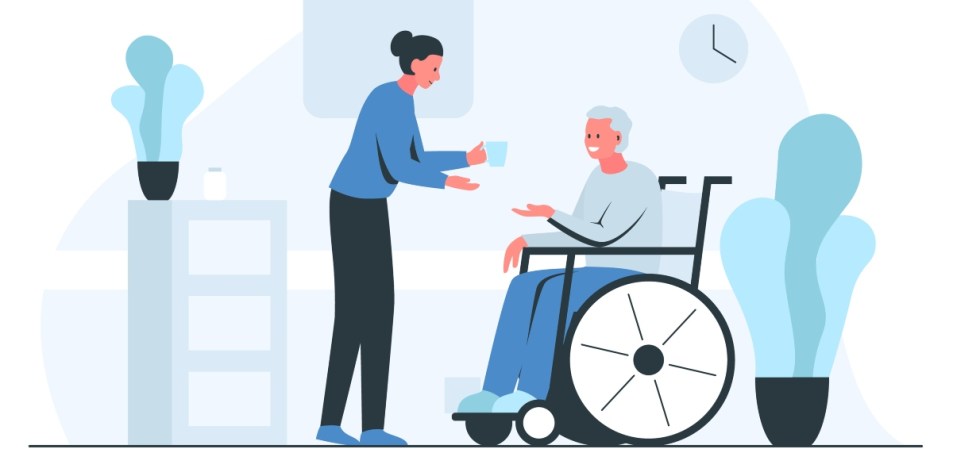
Many caregivers say they need more emotional support. Providing care for another person can be a rewarding but exhausting task, whether they are a friend, family member, or patient. It’s common for caregivers to feel guilty if they spend any time on themselves instead of their ill or elderly loved one — but if you don’t allow yourself space to confront and express your own needs, there’s a good chance you’ll experience burnout. Burned out caregivers aren’t getting the assistance they need, and might find themselves trying to bite off more than they can chew; as a result, this can lead to fatigue, anxiety, and depression. But there are ways to cope: Here, our experts share tips to prevent caregiving burnout.
Speak your truth.
Sometimes things don’t feel real until we say them aloud, which is why expert Jennifer L. FitzPatrick advises telling someone you trust what you’re going through. “Be honest with your emotions, particularly guilt.” A refrain she hears from caregivers is, “I wouldn’t feel this way if I were a good daughter or a good spouse.” Just having someone tell you there’s nothing to feel guilty about works wonders.
Honor your grief.
Caregivers often feel “anticipatory grief,” or mourning a loss before it’s happened, says expert Cheryl E. Woodson, MD, who cared for her mother with dementia. To find comfort, she urges honoring who they were. “My mom loved to dance, so I put on music and danced in front of her,” recalls Dr. Woodson. “She didn’t know who I was, but she smiled, and that lifted my spirits.” Small gestures like painting her mother’s nails also helped. “Now, every time I look at my hands, I think of her.”
Accept this emotion.
A hidden feeling caregivers experience is resentment. “When someone lashes out, it’s normal to be angry,” says expert Loren Gelberg-Goff. She suggests saying, “I understand how frustrated you are that you can’t do the things you used to.” This connects you to compassion rather than anger. “Then tell yourself, ‘I’m choosing to spend my time this way.’” These simple words help you feel more in control.
Embrace self-care.
You’ve heard, “Anything worth doing is worth doing well.” But when it comes to caring for yourself, Gelberg-Goff says: “Anything worth doing is even worth doing poorly — i.e., just a few minutes of self-care, even if it’s not exactly what you imagined, is powerful.” She recalls how one woman caring for her husband wanted to take a walk, but she felt stuck. “I suggested she walk back and forth in the house, and she realized she didn’t have to take long walks to do something for herself — small steps build momentum.”
Interrupt autopilot.
“Rather than focus on what you don’t want, ask yourself, ‘What’s my desired outcome?’” urges Gelberg-Goff. “Instead of saying, ‘I don’t want my mother to call me 20 times a day from the other room,’ say to yourself, ‘I will answer after I breathe and feel calm.’ Women are conditioned to put one foot in front of the other, but interrupting that autopilot lets you find balance.”
Consider local support.
No matter how capable you are, leaning on others is invaluable, says Dr. Woodson. “For example, many houses of worship have caregiving ministries that offer support.” Also, the Aging Life Care Association (AgingLifeCare.org), provides eldercare consultants. “I’ve seen how freeing it is for caregivers to connect with people who have experienced the same thing they are.”
Meet our expert panel
- Jennifer L. FitzPatrick, author of Cruising Through Caregiving and Reimagining Customer Service in Healthcare, is a gerontology instructor.
- Cheryl E. Woodson, MD, practiced geriatrics while navigating her mother’s Alzheimer’s. In To Survive Caregiving, she offers her 5 Keys to Caregiver Survival ©.
- Loren Gelberg-Goff is a psychotherapist best known for creating the powerful program for caregivers “Take Back Your Life.” More at LorenGelbergGoff.com.
A version of this article originally appeared in our print magazine, Woman’s World.

Health
Jennifer Hudson Lost 80-Lbs Without Depriving Herself—Learn Her Secrets

Sign Up
Create a free account to access exclusive content, play games, solve puzzles, test your pop-culture knowledge and receive special offers.
Already have an account? Login
Use left and right arrow keys to navigate between menu items.
Use escape to exit the menu.
Health
Kennedy’s Plan for the Drug Crisis: A Network of ‘Healing Farms’

Though Mr. Kennedy’s embrace of recovery farms may be novel, the concept stretches back almost a century. In 1935, the government opened the United States Narcotic Farm in Lexington, Ky., to research and treat addiction. Over the years, residents included Chet Baker and William S. Burroughs (who portrayed the institution in his novel, “Junkie: Confessions of an Unredeemed Drug Addict”). The program had high relapse rates and was tainted by drug experiments on human subjects. By 1975, as local treatment centers began to proliferate around the country, the program closed.
In America, therapeutic communities for addiction treatment became popular in the 1960s and ’70s. Some, like Synanon, became notorious for cultlike, abusive environments. There are now perhaps 3,000 worldwide, researchers estimate, including one that Mr. Kennedy has also praised — San Patrignano, an Italian program whose centerpiece is a highly regarded bakery, staffed by residents.
“If we do go down the road of large government-funded therapeutic communities, I’d want to see some oversight to ensure they live up to modern standards,” said Dr. Sabet, who is now president of the Foundation for Drug Policy Solutions. “We should get rid of the false dichotomy, too, between these approaches and medications, since we know they can work together for some people.”
Should Mr. Kennedy be confirmed, his authority to establish healing farms would be uncertain. Building federal treatment farms in “depressed rural areas,” as he said in his documentary, presumably on public land, would hit political and legal roadblocks. Fully legalizing and taxing cannabis to pay for the farms would require congressional action.
In the concluding moments of the documentary, Mr. Kennedy invoked Carl Jung, the Swiss psychiatrist whose views on spirituality influenced Alcoholics Anonymous. Dr. Jung, he said, felt that “people who believed in God got better faster and that their recovery was more durable and enduring than people who didn’t.”
Health
Children exposed to higher fluoride levels found to have lower IQs, study reveals
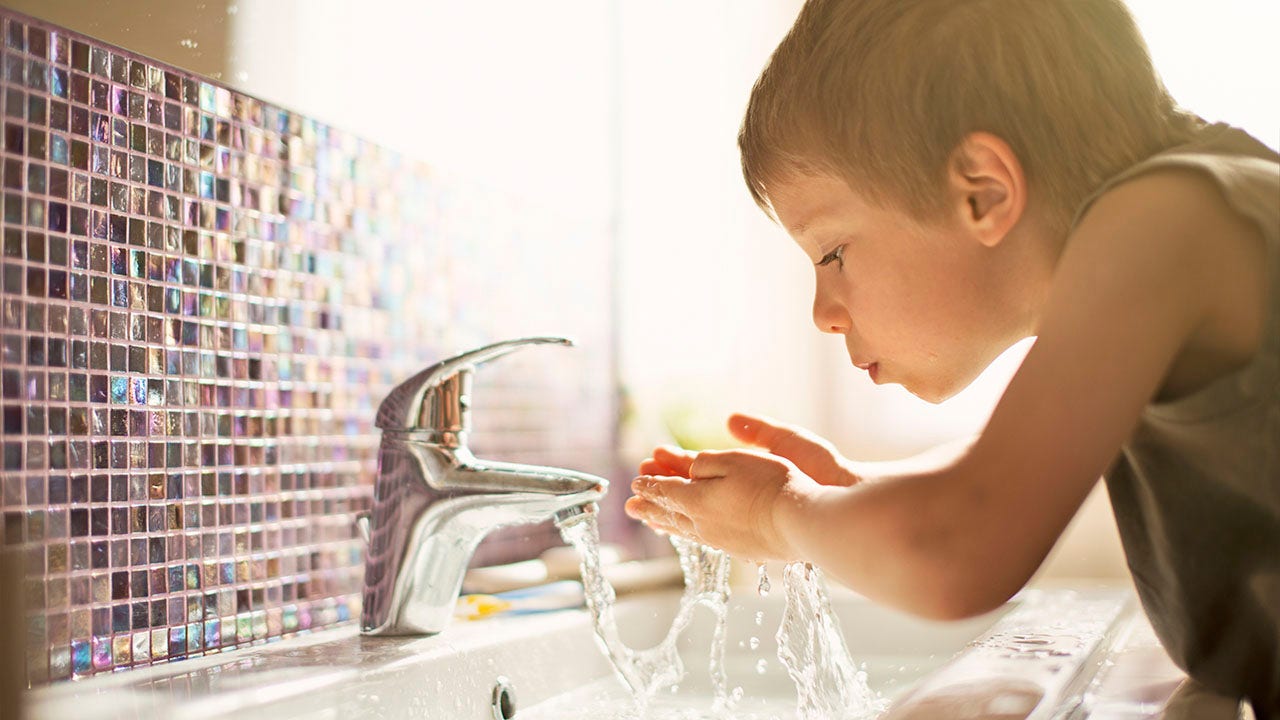
The debate about the benefits and risks of fluoride is ongoing, as RFK Jr. — incoming President Trump’s pick for HHS secretary — pushes to remove it from the U.S. water supply.
“Fluoride is an industrial waste associated with arthritis, bone fractures, bone cancer, IQ loss, neurodevelopmental disorders and thyroid disease,” RFK wrote in a post on X in November.
A new study published in JAMA Pediatrics on Jan. 6 found another correlation between fluoride exposure and children’s IQs.
RFK JR. CALLS FOR REMOVAL OF FLUORIDE FROM DRINKING WATER, SPARKING DEBATE
Study co-author Kyla Taylor, PhD, who is based in North Carolina, noted that fluoridated water has been used “for decades” to reduce dental cavities and improve oral health.
Fluoride exposure has been linked to a variety of negative health effects, yet benefits oral health. (iStock)
“However, there is concern that pregnant women and children are getting fluoride from many sources, including drinking water, water-added foods and beverages, teas, toothpaste, floss and mouthwash, and that their total fluoride exposure is too high and may affect fetal, infant and child neurodevelopment,” she told Fox News Digital.
The new research, led by scientists at the National Institute of Environmental Health Sciences (NIEHS), analyzed 74 epidemiological studies on children’s IQ and fluoride exposure.
FEDERAL JUDGE ORDERS EPA FURTHER REGULATE FLUORIDE IN DRINKING WATER DUE TO CONCERNS OVER LOWERED IQ IN KIDS
The studies measured fluoride in drinking water and urine across 10 countries, including Canada, China, Denmark, India, Iran, Mexico, Pakistan, New Zealand, Spain and Taiwan. (None were conducted in the U.S.)
The meta-analysis found a “statistically significant association” between higher fluoride exposure and lower children’s IQ scores, according to Taylor.
“[It showed] that the more fluoride a child is exposed to, the more likely that child’s IQ will be lower than if they were not exposed,” she said.
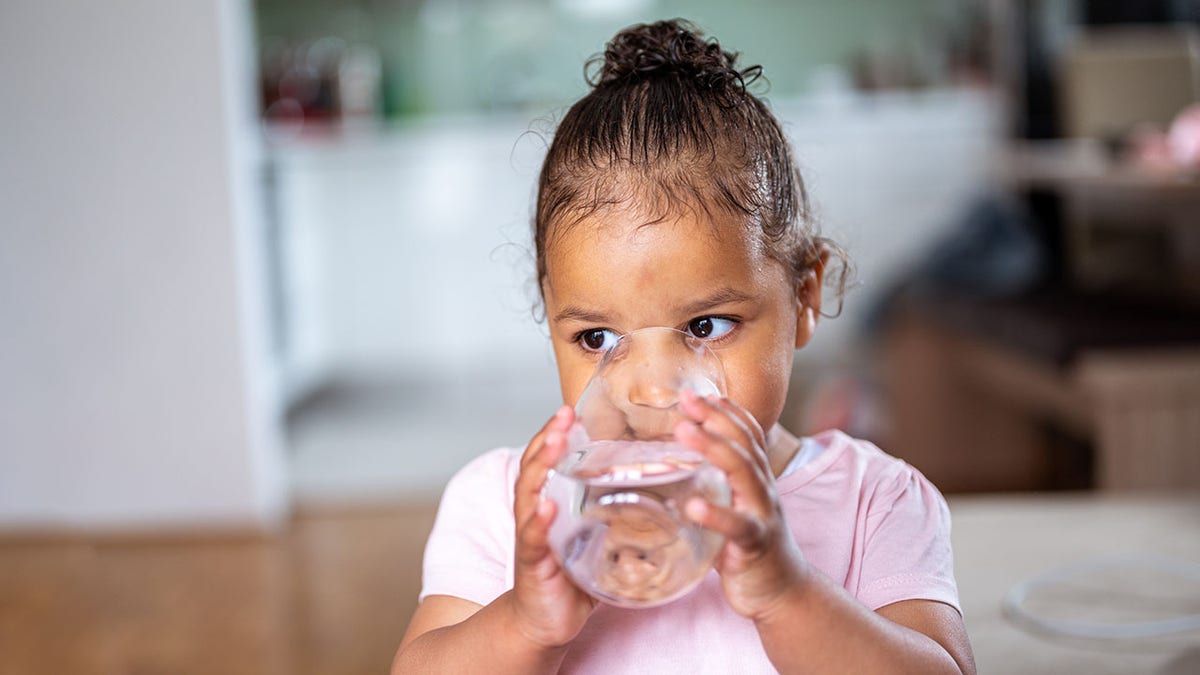
Scientists found a “statistically significant association” between higher fluoride exposure and lower children’s IQ scores. (iStock)
These results were consistent with six previous meta-analyses, all of which reported the same “statistically significant inverse associations” between fluoride exposure and children’s IQs, Taylor emphasized.
The research found that for every 1mg/L increase in urinary fluoride, there was a 1.63-point decrease in IQ.
‘Safe’ exposure levels
The World Health Organization (WHO) has established 1.5mg/L as the “upper safe limit” of fluoride in drinking water.
“There is concern that pregnant women and children are getting fluoride from many sources.”
Meanwhile, the U.S. Public Health Service recommends a fluoride concentration of 0.7 mg/L in drinking water.
“There was not enough data to determine if 0.7 mg/L of fluoride exposure in drinking water affected children’s IQs,” Taylor noted.
FDA BANS RED FOOD DYE DUE TO POTENTIAL CANCER RISK
Higher levels of the chemical can be found in wells and community water serving nearly three million people in the U.S., the researcher noted.
She encouraged pregnant women and parents of small children to be mindful of their total fluoride intake.

Nearly three million people have access to wells and community water with fluoride levels above the levels suggested by the World Health Organization. (iStock)
“If their water is fluoridated, they may wish to replace tap water with low-fluoride bottled water, like purified water, and limit exposure from other sources, such as dental products or black tea,” she said.
“Parents can use low-fluoride bottled water to mix with powdered infant formula and limit use of fluoridated toothpaste by young children.”
For more Health articles, visit www.foxnews.com/health.
While the research did not intend to address broader public health implications of water fluoridation in the U.S., Taylor suggested that the findings could help inform future research into the impact of fluoride on children’s health.
Dental health expert shares cautions
In response to this study and other previous research, Dr. Ellie Phillips, DDS, an oral health educator based in Austin, Texas, told Fox News Digital that she does not support water fluoridation.
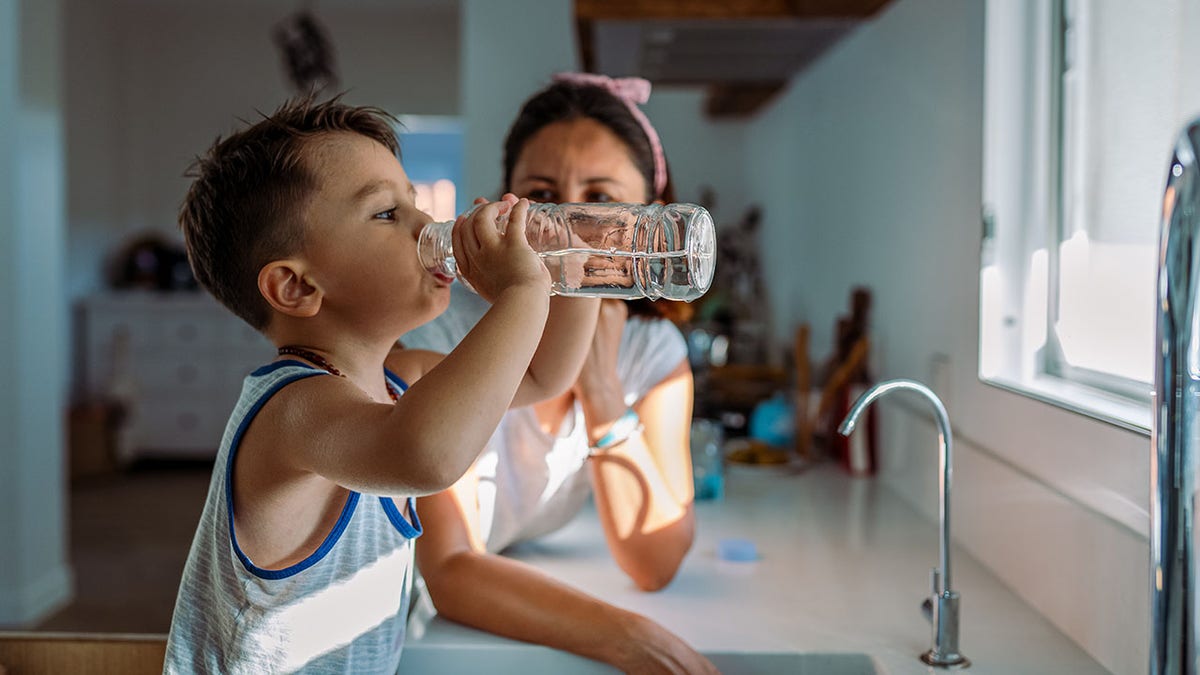
The study researcher encouraged parents of small children to be mindful of their total fluoride intake. (iStock)
“I join those who vehemently oppose public water fluoridation, and I question why our water supplies are still fluoridated in the 21st century,” she wrote in an email.
“There are non-fluoridated cities and countries where the public enjoy high levels of oral health, which in some cases appear better than those that are fluoridated.”
CLICK HERE TO SIGN UP FOR OUR HEALTH NEWSLETTER
Phillips called the fluoride debate “confusing” even among dentists, as the American Dental Association (ADA) advocates for fluoride use for cavity prevention through water fluoridation, toothpaste and mouthwash — “sometimes in high concentrations.”
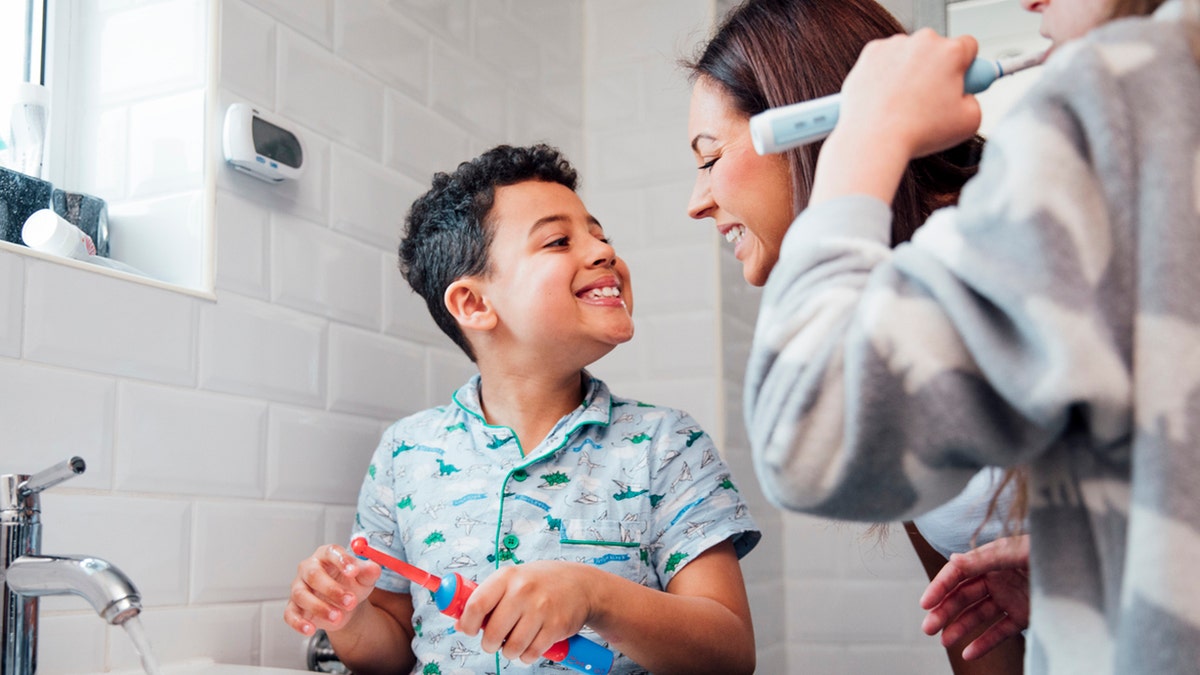
Fluoride is used in water, toothpaste and mouthwash to help prevent cavities. (iStock)
“[But] biologic (holistic) dentists generally encourage their patients to fear fluoride and avoid its use entirely, even if their teeth are ravaged by tooth decay,” she said.
“Topical fluoride is beneficial, while systemic consumption poses risks.”
Phillips encouraged the public to consider varying fluoride compounds, the effect of different concentrations and the “extreme difference” between applying fluoride topically and ingesting it.
“Topical fluoride is beneficial, while systemic consumption poses risks,” she cautioned.
“Individuals must take charge of their own oral health using natural and informed strategies.”
The study received funding from the National Institute of Environmental Health Sciences (NIEHS), the National Institutes of Health (NIH) and the Intramural Research Program.
-
/cdn.vox-cdn.com/uploads/chorus_asset/file/25822586/STK169_ZUCKERBERG_MAGA_STKS491_CVIRGINIA_A.jpg)
/cdn.vox-cdn.com/uploads/chorus_asset/file/25822586/STK169_ZUCKERBERG_MAGA_STKS491_CVIRGINIA_A.jpg) Technology1 week ago
Technology1 week agoMeta is highlighting a splintering global approach to online speech
-

 Science1 week ago
Science1 week agoMetro will offer free rides in L.A. through Sunday due to fires
-
/cdn.vox-cdn.com/uploads/chorus_asset/file/23935558/acastro_STK103__01.jpg)
/cdn.vox-cdn.com/uploads/chorus_asset/file/23935558/acastro_STK103__01.jpg) Technology7 days ago
Technology7 days agoAmazon Prime will shut down its clothing try-on program
-

 News1 week ago
News1 week agoMapping the Damage From the Palisades Fire
-
/cdn.vox-cdn.com/uploads/chorus_asset/file/25826211/lorealcellbioprint.jpg)
/cdn.vox-cdn.com/uploads/chorus_asset/file/25826211/lorealcellbioprint.jpg) Technology6 days ago
Technology6 days agoL’Oréal’s new skincare gadget told me I should try retinol
-
/cdn.vox-cdn.com/uploads/chorus_asset/file/25832751/2192581677.jpg)
/cdn.vox-cdn.com/uploads/chorus_asset/file/25832751/2192581677.jpg) Technology3 days ago
Technology3 days agoSuper Bowl LIX will stream for free on Tubi
-

 Business5 days ago
Business5 days agoWhy TikTok Users Are Downloading ‘Red Note,’ the Chinese App
-
/cdn.vox-cdn.com/uploads/chorus_asset/file/25835602/Switch_DonkeyKongCountryReturnsHD_scrn_19.png)
/cdn.vox-cdn.com/uploads/chorus_asset/file/25835602/Switch_DonkeyKongCountryReturnsHD_scrn_19.png) Technology1 day ago
Technology1 day agoNintendo omits original Donkey Kong Country Returns team from the remaster’s credits















